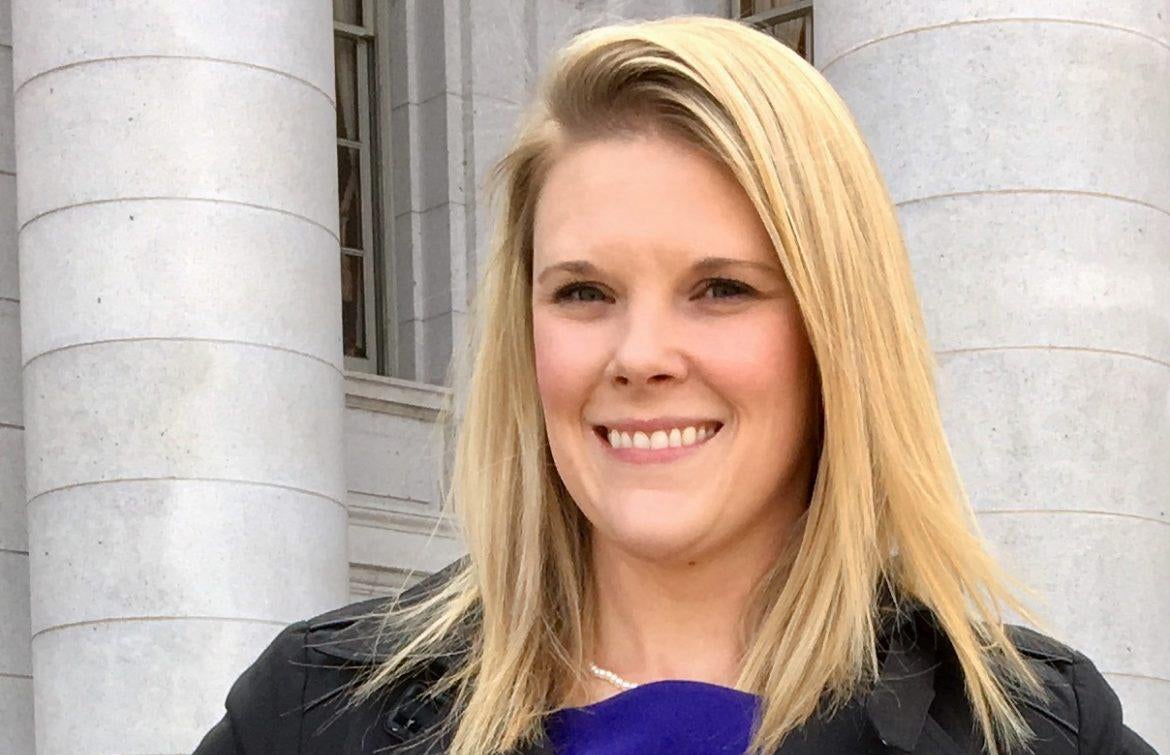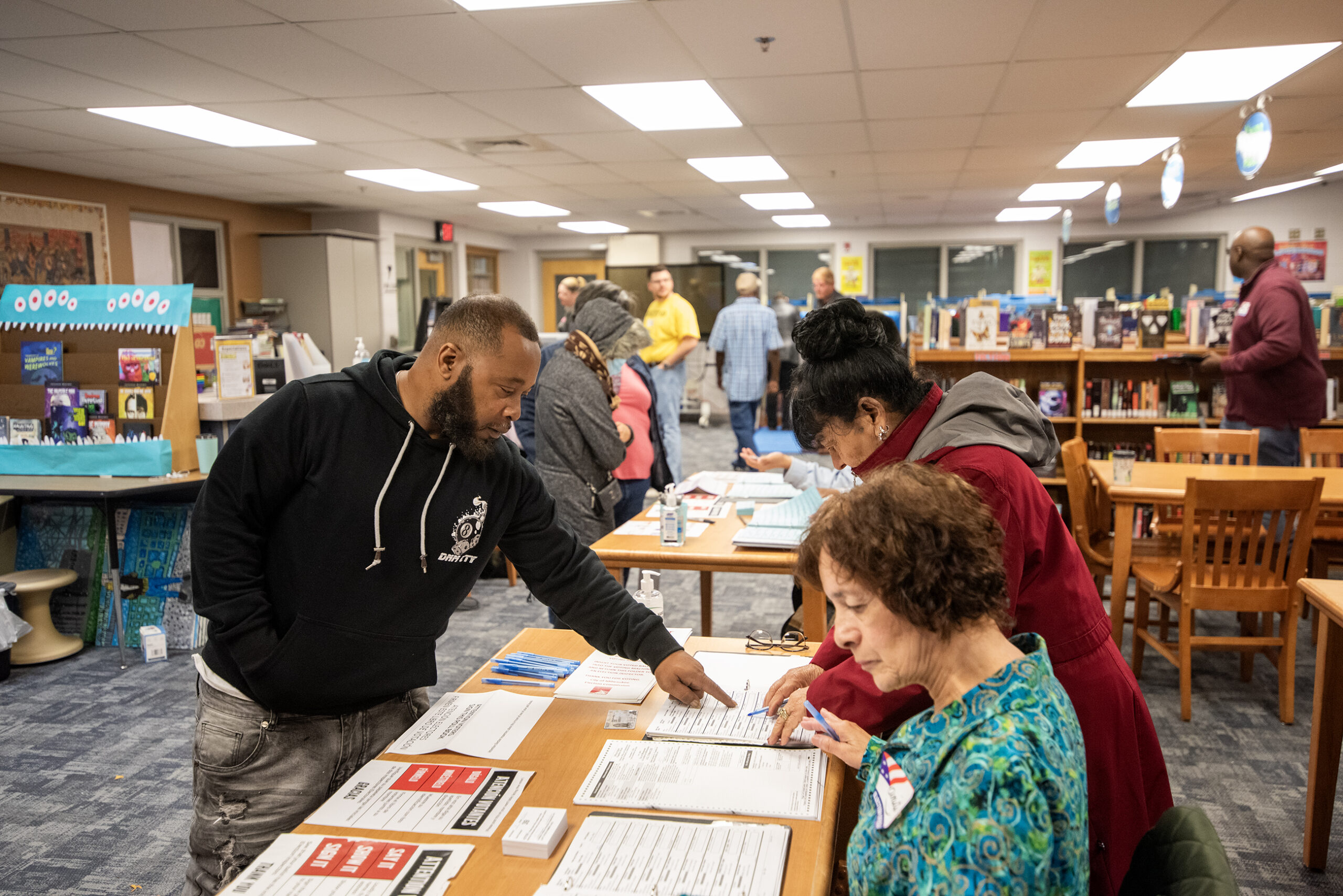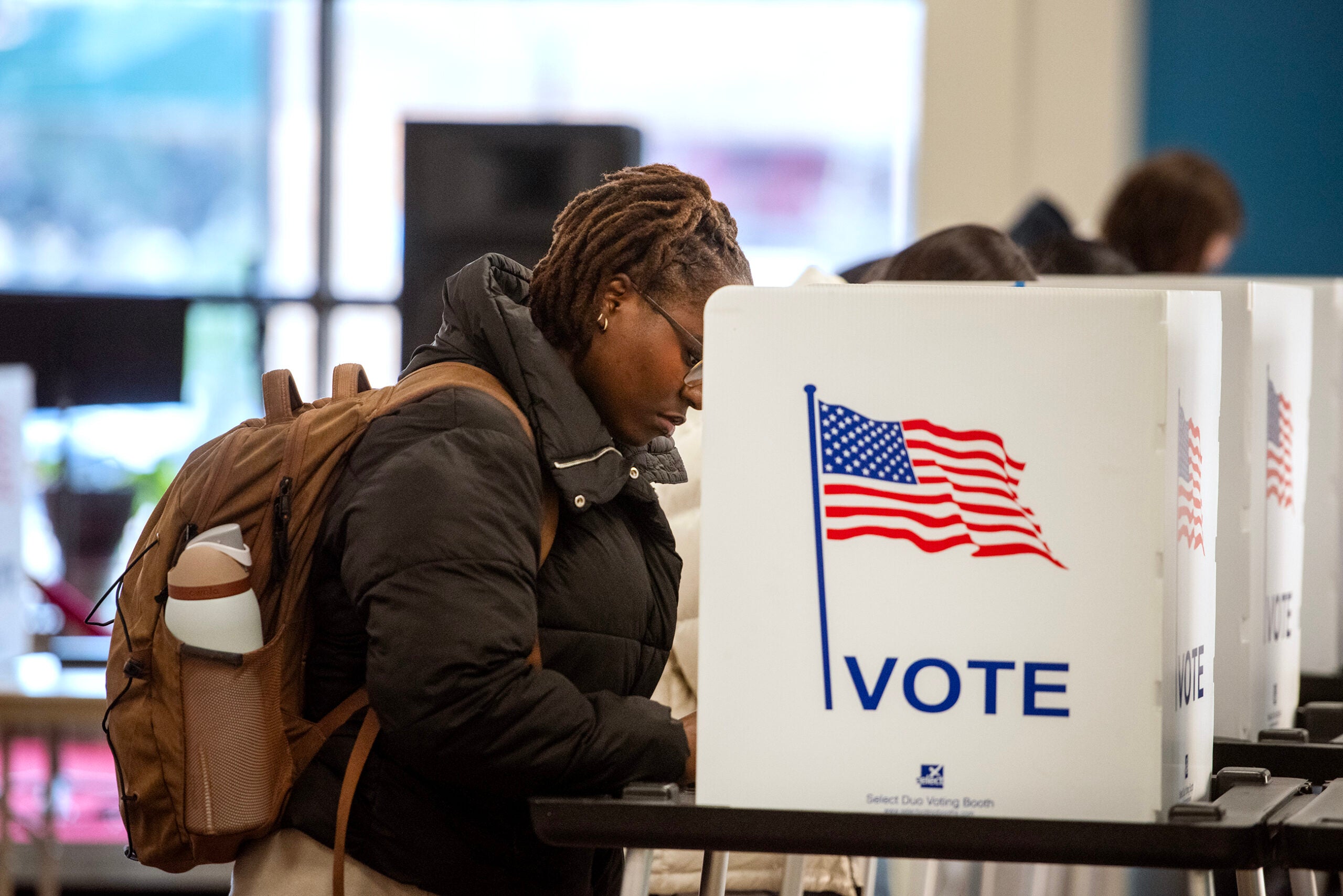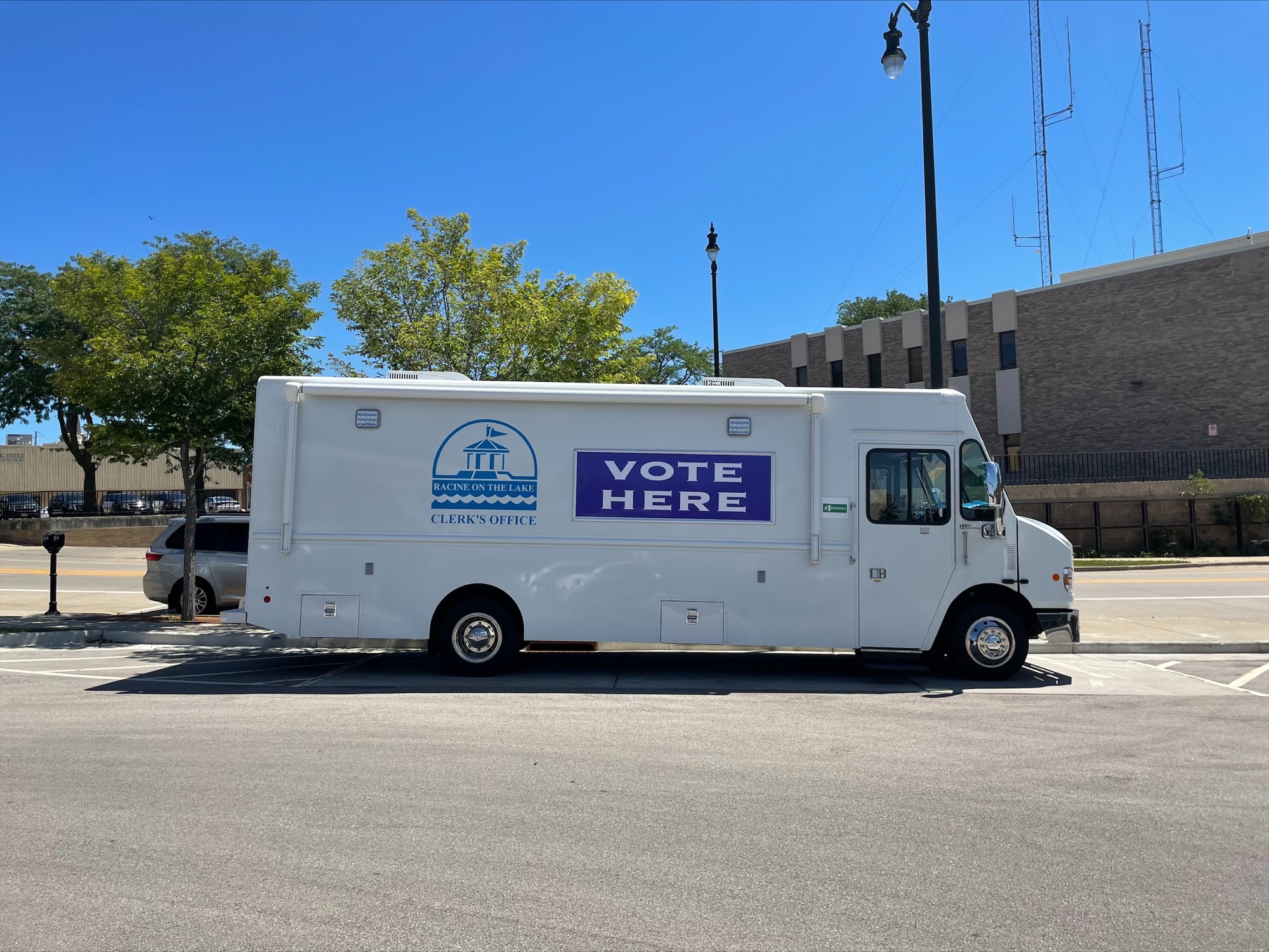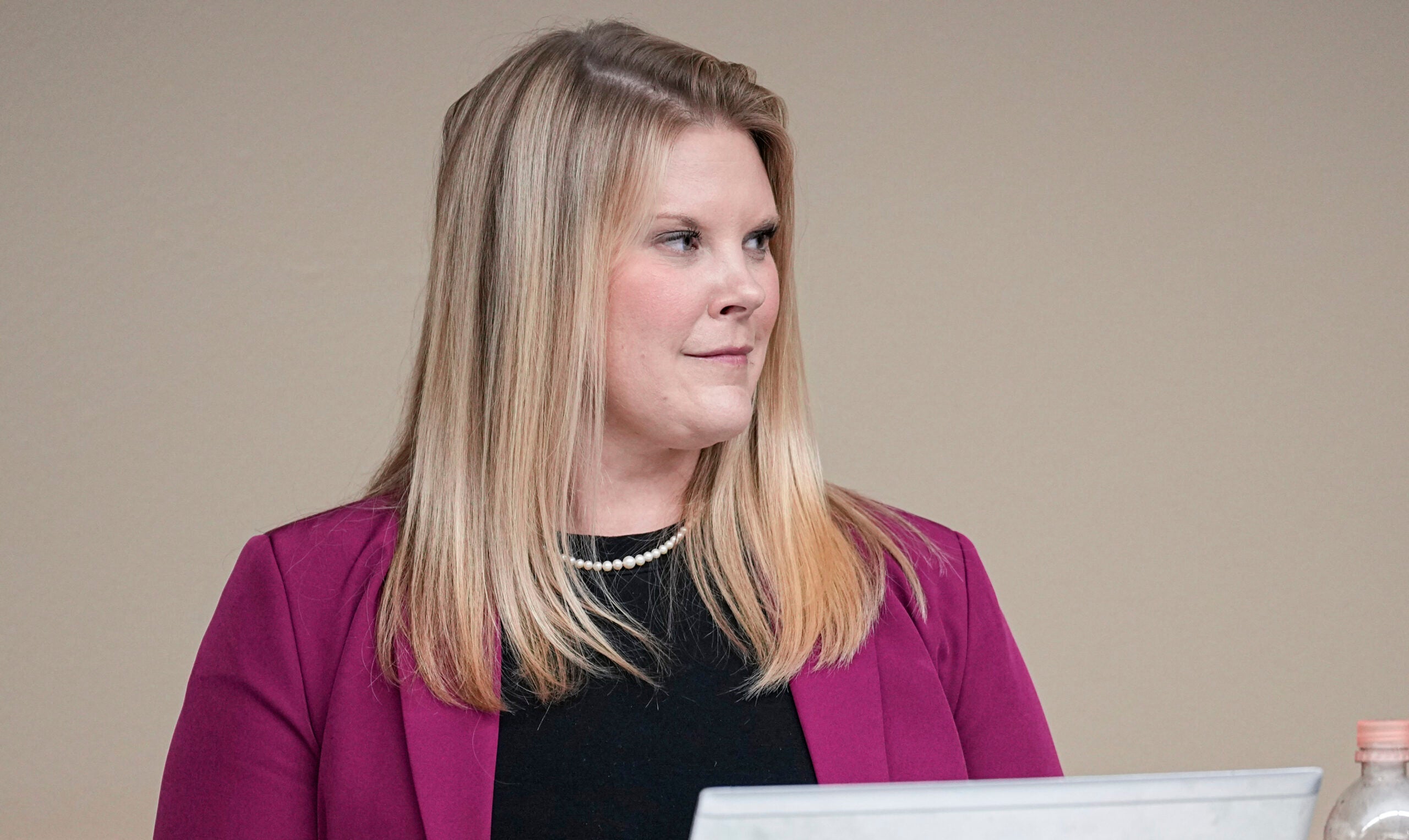Wisconsin’s embattled elections chief says in 12 years of work, she’s learned people are often trying to game the system. That’s why, she says, elections must be overseen by nonpartisan officials like her.
“I’ve had the great fortune to hold a number of different positions in election administration. And during that time, we often see politicians that desire some type of political outcome, desire some type of change that may advantage them,” said Meagan Wolfe, administrator of the Wisconsin Elections Commission. “And it’s absolutely my obligation to stay above the fray, above the political fray, and to seek clarity through the court process, seek clarity from my bipartisan commission — certainly not to seek clarity or direction through the political process.”
Wolfe was appointed to oversee the state’s elections in 2018 and confirmed by the state Senate in May 2019. However, the six-member Elections Commission recently deadlocked over whether to reappoint her, with three Republican members voting in favor and three Democratic members abstaining. The Democrats say the commission now lacks authority to appoint an administrator in light of a recent court ruling.
News with a little more humanity
WPR’s “Wisconsin Today” newsletter keeps you connected to the state you love without feeling overwhelmed. No paywall. No agenda. No corporate filter.
On Sept. 11, the state’s Republican-controlled Senate voted to remove Wolfe, criticizing policies that were put in place during the heart of the pandemic and saying they want to restore faith in the state’s election process. State Attorney General Josh Kaul, a Democrat, filed a lawsuit against legislative leaders, arguing their attempt to remove Wolfe is illegal.
Wolfe appeared on Wisconsin Public Radio’s “The Morning Show” to discuss the vote against her. Wolfe said she will remain in her position until the courts resolve the issue.
Days after the conversation, Republicans in the state Assembly moved to impeach Wolfe, citing “maladministration during her tenure” and failing “to adhere to existing statutes.”
On “The Morning Show,” Wolfe spoke about her role as administrator and why she believes Wisconsin’s election process can be trusted.
The following conversation has been edited for clarity and brevity.
Kate Archer Kent: Senate Republicans vote to reject your appointment to the Wisconsin Elections Commission. What happens next?
Meagan Wolfe: I serve as the administrator at the will of the bipartisan Wisconsin Elections Commission. We have three Republicans and three Democrats on the commission, and they need four votes in order to implement any type of action, including the appointment of the administrator.
The commission, in light of a recent state Supreme Court decision, has deadlocked on the procedural way to have me continue in this position. I was really grateful that all six of them — the three Republicans and three Democrats — all expressed support for my job performance and in me continuing in this position. They just met a procedural deadlock on how to achieve that.
Now, the next steps are seeking clarity through the court system. … I will absolutely respect whatever the ultimate outcome is of that final determination of the courts. But I do hope that we get that clarity as soon as possible.
KAK: Meanwhile, you say you will stay in your job unless the court rules otherwise. Is that true?
MW: That’s correct. Or unless my bipartisan commission votes to remove me. Again, as the administrator, my job is to implement the directives of the bipartisan Wisconsin Elections Commission. I don’t have a vote on the commission. I serve at their will. And so the statute says that at any time, if the commission would like, if they’re not satisfied with my job performance, if they’d like to go in another direction, the commission at any time can hold a meeting where they could vote to ask me to leave.
But that has not occurred. And so I will remain in this position until a court makes a final determination, or unless the commission should decide that they would like me to leave.
KAK: What were you thinking as you were watching the Senate hearing, watching the vote, calling for your removal?
MW: It was purely a political process. And I’ve seen a lot of political pressure directed at myself and election officials around the state where political groups want to achieve a political objective. In this instance, that means removing me as the nonpartisan administrator of elections, because I’ve shown that I will not bend to political pressure.
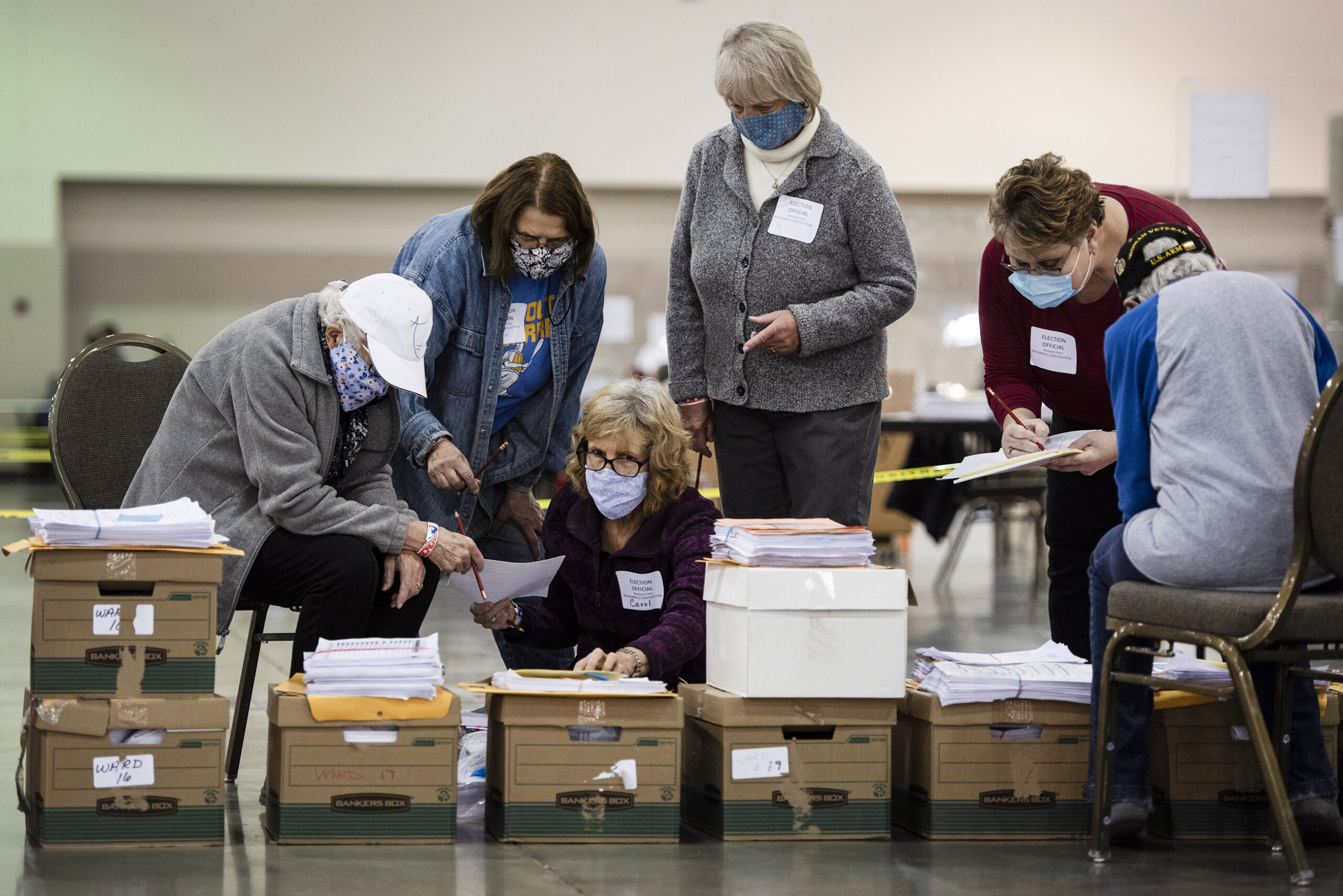
KAK: Former President Donald Trump is being prosecuted in Georgia for efforts to overturn the 2020 election results there. And Trump is fueling criticism of election authorities in numerous states where he lost, including Wisconsin. Do you see a connection between Trump’s attacks on elections and Republicans in the Senate now voting to fire you?
MW: That’s a very fair question, but it’s probably more suited for a politician. That being said … elections in Wisconsin are run with integrity. They’re fair and they’re accurate. And a lot of that has to do with the fact that our elections are run by nearly 2,000 local election officials — clerks in each of Wisconsin’s cities, towns, villages and counties.
What that means is literally in every single community in Wisconsin… you can engage with the process directly. If you’d like to go see how the election equipment is tested before Election Day, you can actually go and be a part of that process in your local communities. If you’d like to watch as the votes are tabulated on Election Day or the absentee ballots are processed, you can go and watch that in your local community. If you’d like to watch the double and triple checks that happen as part of the canvass process in your city, town, village or county, you can go and be a part of that process. You can even watch the audits that happen after an election where we make sure that the machine total matches the paper ballot total. You can go watch that, too.
And so you don’t have to take my word for it. You can actually go engage, be a part of the election process in your community and see for yourself that our elections are fair, accurate and run with integrity.
Wisconsin Public Radio, © Copyright 2025, Board of Regents of the University of Wisconsin System and Wisconsin Educational Communications Board.

